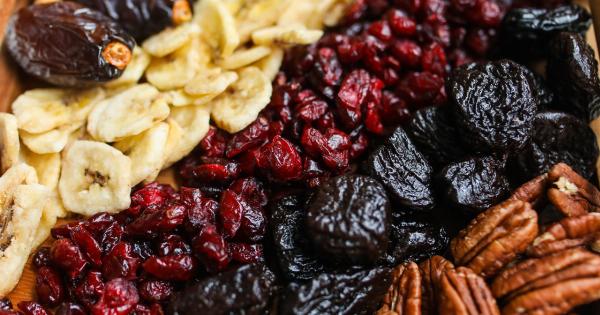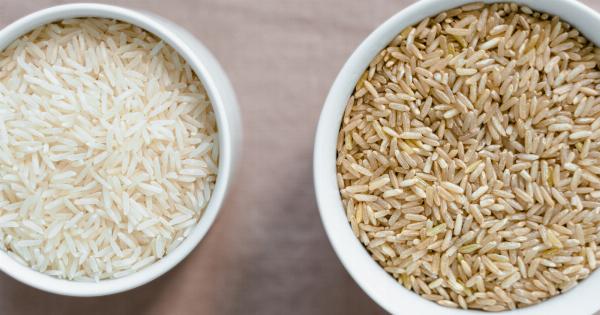When it comes to nutrition, peaches are not only delicious but also a healthy choice. Peaches are packed with essential vitamins, minerals, and dietary fiber, making them a great addition to your diet.
In this article, we will explore the nutritional facts of a peach and discover why it should be included in your daily intake.
Vitamin Content
Peaches are an excellent source of various vitamins, especially vitamin C. A medium-sized peach can provide around 10% of the recommended daily intake of vitamin C.
This essential vitamin plays a crucial role in boosting the immune system, supporting healthy skin, and aiding in the absorption of iron from plant-based foods.
In addition to vitamin C, peaches also contain other essential vitamins such as vitamin A, vitamin E, and a range of B-vitamins including thiamin, riboflavin, and niacin.
These vitamins contribute to various bodily functions, including promoting healthy vision, maintaining a healthy nervous system, and supporting energy metabolism.
Mineral Content
Peaches are quite rich in minerals that are vital for our overall health. One important mineral found in peaches is potassium.
Potassium plays a significant role in maintaining proper heart and muscle function, regulating blood pressure, and balancing fluid levels in the body.
Furthermore, peaches also contain small amounts of other minerals like calcium, magnesium, phosphorus, and iron. Calcium is essential in maintaining strong bones and teeth, while magnesium is involved in energy production and nerve function.
Phosphorus is necessary for cell growth and repair, while iron is crucial for oxygen transportation throughout the body.
Dietary Fiber
Peaches are a great source of dietary fiber, with around 2 grams of fiber per medium-sized peach. Fiber is important for maintaining a healthy digestive system, preventing constipation, and promoting satiety, which can aid in weight management.
The fiber in peaches can also help regulate blood sugar levels by slowing down the absorption of glucose into the bloodstream. This can be especially beneficial for individuals with diabetes or those at risk of developing the condition.
Antioxidants
Peaches are packed with antioxidants that help protect the body against free radicals. Free radicals are unstable molecules that can damage cells and contribute to various chronic diseases, including heart disease and certain cancers.
The antioxidants in peaches, such as vitamin C and beta-carotene, help neutralize these harmful free radicals and reduce the risk of oxidative stress.
Additionally, peaches also contain other antioxidants like chlorogenic acid and lutein, which have been linked to promoting eye health and reducing inflammation.
Low in Calories and Fat
If you’re watching your calorie intake, peaches are an excellent choice. They are low in calories, with only about 60-70 calories per medium-sized peach.
Moreover, peaches are virtually fat-free, making them a great option for those looking to maintain or lose weight.
Hydration
Peaches have a high water content, making them a hydrating fruit. Staying properly hydrated is essential for maintaining overall health and supporting various bodily functions.
Including peaches in your diet can help increase your fluid intake and contribute to adequate hydration.
Conclusion
In conclusion, peaches are not only delicious but also a nutritious fruit. They are a rich source of essential vitamins, minerals, antioxidants, and dietary fiber.
Including peaches in your diet can provide numerous health benefits, such as boosting the immune system, supporting digestion, and reducing the risk of chronic diseases. So, next time you’re in the mood for a tasty snack, reach for a peach and enjoy both its incredible flavor and nutritional value.






























